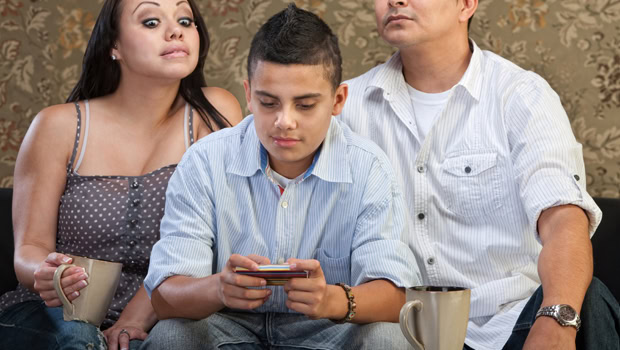Why My Family Doesn’t Use Nightscout

There’s huge buzz in the diabetes community about the Nightscout project. Nightscout allows family members or trusted friends to view Dexcom G4 continuous glucose monitor data in realtime via the cloud on smartphones, tablets, computers and the Pebble smartwatch. It isn’t an integrated product created by medical manufacturers and software developers, but a workaround that was developed by techsavvy individuals personally affected by diabetes.
I have been on the fence about joining the Nightscout movement. It would seem like a given that we would want more up-to-the-minute information about our son’s diabetes, but there rarely is a black or white answer when it comes to taking care of a child with Type 1 diabetes. When my child was first diagnosed at the age of five, such a data-sharing platform would have been absolutely invaluable. Relying on your powers of observation or your young child’s ability to detect a low is anxiety-provoking, so having a tech solution to back up hunches would have been a perfect solution. Nightscout would have been even more invaluable when my young son wasn’t by my side.
But he is no longer a five-year-old; he’s a middle-schooler. For eight hours a day, he manages his own diabetes using his Dexcom continuous glucose monitor (CGM) and Omnipod insulin pump. The middle school office staff say hello to him as he walks into the health room to check his sugar and bolus before lunch, and that’s about it. For a good chunk of the day, his diabetes management is on him.
Recently, I sat down with my son and explained Nightscout, and then asked him what he thought.
“I think it would violate my privacy,” he said. I suppressed a laugh at how formally he expressed himself, but I had speculated that he might have felt this way. Even though we have access to all his Dexcom data, my son wants to maintain some realtime privacy. Going off to school each day and managing his diabetes is something that he owns, and we would be encroaching on his hard-won turf.
While he clearly didn’t want Nightscout, I still wondered if it were necessary. After all, he didn’t always make the choices that I would want him to make with his diabetes. Earlier this year, for example, he rode the bus home from school with a low blood sugar. The CGM read in the low 60s. It remained in that range for nearly an hour.
Looking at the CGM graph after the fact, I asked why he didn’t treat the low on the way home. My son said that he didn’t think he was that low because the Dexcom isn’t always accurate. Also, he didn’t want to dig supplies out of his backpack, which was jampacked at his feet. We talked about carrying sugar in his coat pocket for lows, but he didn’t have any at the time. In the end, he made a judgement call that the trend was steady and that he could make it home.
Having Nightscout data at my fingertips, I think it would be hard for me to stand by as an observer during worrisome blood sugar readings; I’d feel compelled to intervene. I pictured a scenario of a BG reading of 325. With such a reading, I would agonize over whether he would already be correcting it, whether it was trending upward or downward, and whether he had checked for ketones.
If I saw a low on the screen, it would be even worse. I picture how I would react if I saw a 75 with an arrow trending downward. I would hope he was treating it right away. A text might be in order. Knowing my son as I do, his phone would probably be off and buried in his backpack. I could see myself debating the merits of calling the middle school or chasing down the school bus. I don’t think I could resist the pull of helicopter parenting with such a device.
At this stage in our lives, I think it’s best if I don’t have the ability to monitor my son’s blood sugars in real-time with Nightscout. It would take great restraint not to react, or overreact. As a diabetes mom, I’m grateful that it has been added to our collective toolbox, and a few years from now, I may even be singing its praises. For now, I’ll give my son his eight hours of school each day, his tae kwon do classes, and his social outings, unmonitored by me. He needs room to grow up, and that includes granting him the independence to manage his blood sugars in the moment.
Like this author, we at Insulin Nation agree the decision to use Nightscout is for each individual family to make. What’s your take? Share this story on social media and feel free to comment below.
Thanks for reading this Insulin Nation article. Want more Type 1 news? Subscribe here.
Have Type 2 diabetes or know someone who does? Try Type 2 Nation, our sister publication.